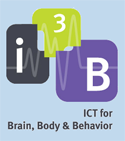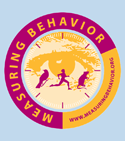Take a typical conversation: Hello, how are you? Fine! How are you? {pause} Fine! Shall we …….etcetera. The opening of this conversation is highly structured, isn’t it? The process of turn taking is a crucial and cooperative aspect of conversational speech. Gestures are also of great importance. When your feet are already turned to the door, you are getting ready to run out. Try to read your own signals and you will see!
Conversation closers
In a conversation we include hints like conversation openers, closers, and shifters. It’s a feeling we’re all familiar with: you’re trying desperately to end a conversation, and the other person keeps on talking and does not read the clues you are giving. You say: “Anyway… “ {…Person B keeps talking} “see you Thursday, all right?” and edge toward the door… {Person B talks over you.} “Thursday noon, was it, right?” {Person B still doesn’t get the hint to leave.}…and so on. In this frustrating exchange, Person B repeatedly ignores your conversation closers, both verbal (“right”, “all right”, “anyway”) and nonverbal.
















